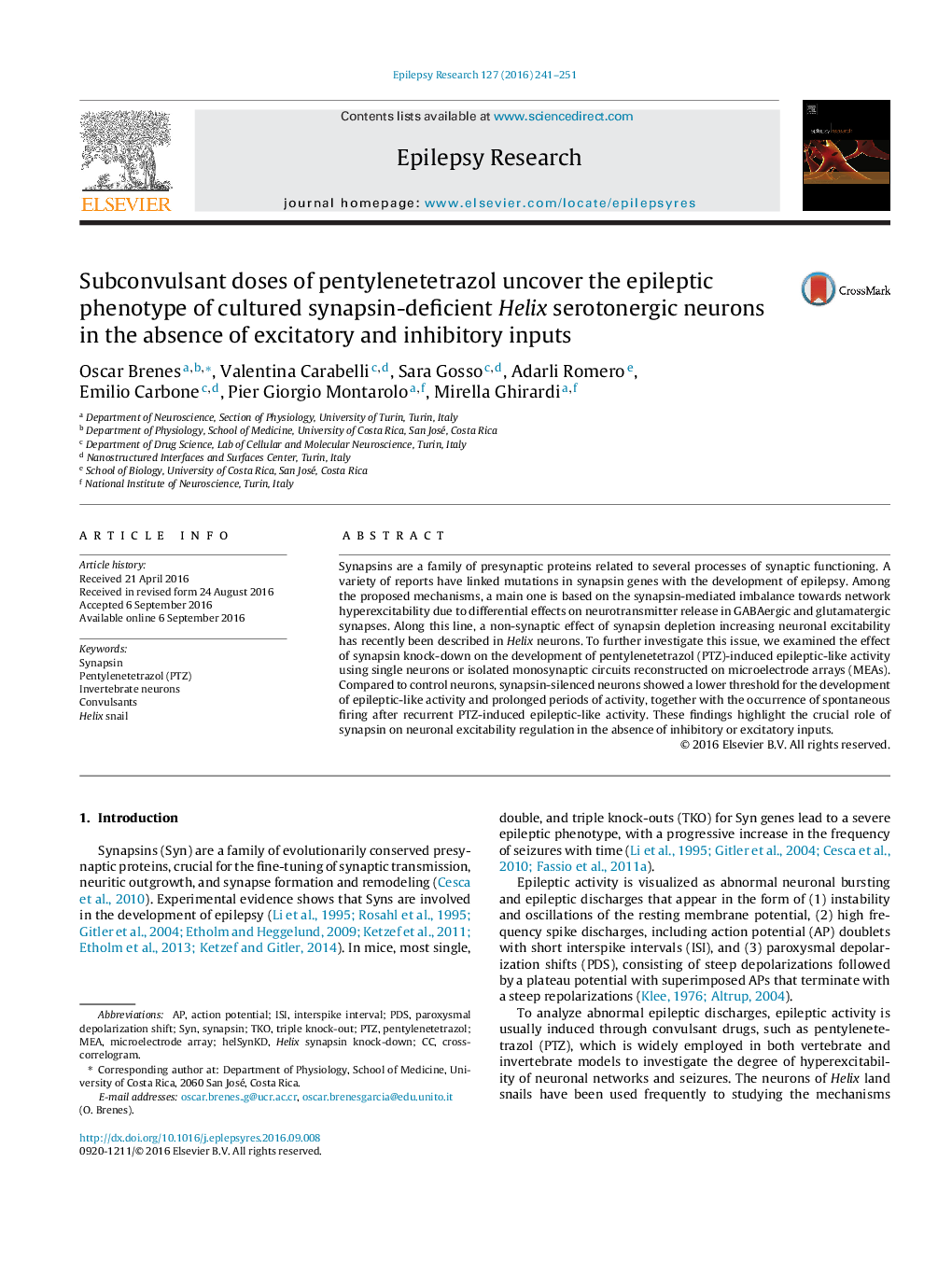| Article ID | Journal | Published Year | Pages | File Type |
|---|---|---|---|---|
| 6015051 | Epilepsy Research | 2016 | 11 Pages |
Abstract
Synapsins are a family of presynaptic proteins related to several processes of synaptic functioning. A variety of reports have linked mutations in synapsin genes with the development of epilepsy. Among the proposed mechanisms, a main one is based on the synapsin-mediated imbalance towards network hyperexcitability due to differential effects on neurotransmitter release in GABAergic and glutamatergic synapses. Along this line, a non-synaptic effect of synapsin depletion increasing neuronal excitability has recently been described in Helix neurons. To further investigate this issue, we examined the effect of synapsin knock-down on the development of pentylenetetrazol (PTZ)-induced epileptic-like activity using single neurons or isolated monosynaptic circuits reconstructed on microelectrode arrays (MEAs). Compared to control neurons, synapsin-silenced neurons showed a lower threshold for the development of epileptic-like activity and prolonged periods of activity, together with the occurrence of spontaneous firing after recurrent PTZ-induced epileptic-like activity. These findings highlight the crucial role of synapsin on neuronal excitability regulation in the absence of inhibitory or excitatory inputs.
Keywords
Related Topics
Life Sciences
Neuroscience
Neurology
Authors
Oscar Brenes, Valentina Carabelli, Sara Gosso, Adarli Romero, Emilio Carbone, Pier Giorgio Montarolo, Mirella Ghirardi,
